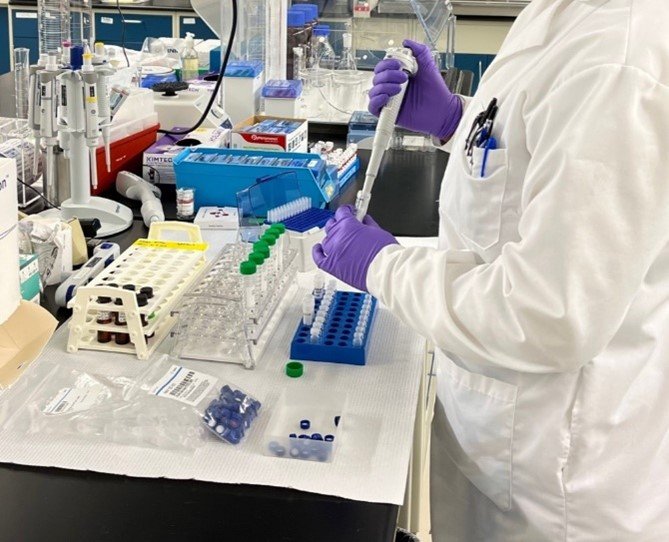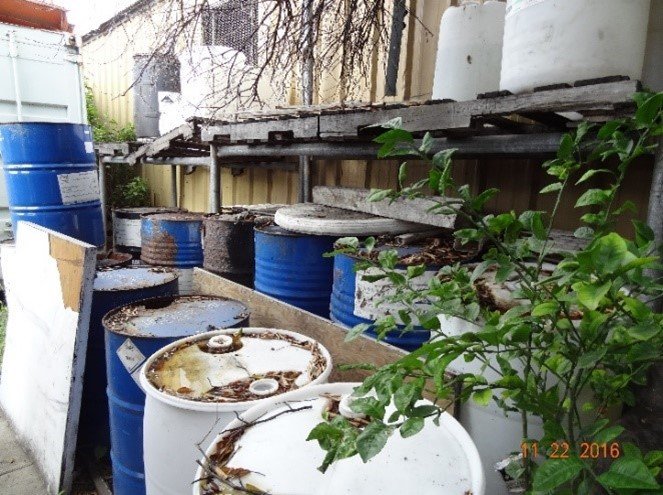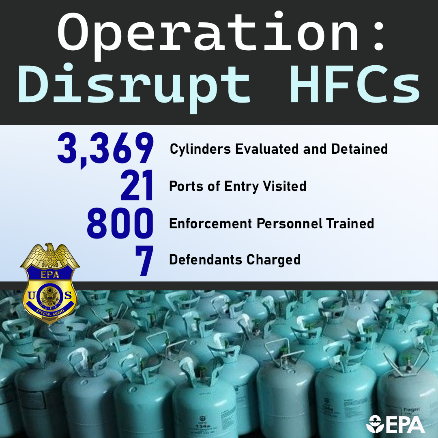Enforcement and Compliance Assurance Annual Results for FY 2024: Criminal Enforcement
The Environmental Protection Agency’s mission to protect public health and the environment depends upon fair and robust enforcement that holds polluters accountable. Fairness demands that EPA pursue enforcement actions based solely on the law and the facts and its obligation to protect communities from unlawful pollution.
In fiscal year 2024, EPA’s criminal enforcement program hired new agents, trained over 1,000 civil and law enforcement partners on a wide range of environmental crime topics, and expanded outreach efforts by strengthening long-standing task forces. EPA’s revitalized criminal enforcement program advanced numerous cases, resulting in the most criminal defendants charged since FY 2019.
The efforts over the past year seek to provide justice for communities scarred by pollution and uphold the rule of law so that law-abiding companies are not at a competitive disadvantage with polluters. Leveraging all appropriate tools, including criminal enforcement authorities, will enhance EPA's efforts to deter illegal activities that harm public health and the environment.
Civil-Criminal Enforcement Strategy

In April 2024, EPA's enforcement program issued the Strategic Civil-Criminal Enforcement Policy (pdf) to ensure a strong partnership between its civil and criminal programs using joint strategic planning, rigorous case screening, regular communication, and appropriate enforcement tools to address a violation. Along with this strategic coordination, the criminal enforcement program is, for the first time, working in collaboration with the civil enforcement program on the development and implementation of EPA’s national priorities, including the agency’s PFAS Strategic Roadmap and the enforcement and compliance assurance program’s FY 2024-2027 National Enforcement and Compliance Initiatives or NECIs. These collaborative efforts led to a 12% increase in criminal leads opened because of referrals from EPA Headquarters and regional offices.

The criminal program’s forensics arm provides field and laboratory support to both civil and criminal projects in Headquarters and EPA Regions. The lab completed 789 analyses in support of civil inspections in FY 2024. The lab also validated a method to measure per- and polyfluoroalkyl substances or PFAS in soils and developed an innovative approach to identify pollutants found in coal ash, both of which could benefit the NECIs. Additionally, forensic field personnel conducted nine air monitoring projects throughout the country. These are just some examples of the ways that the civil and criminal programs partner to get the best possible case outcomes for both programs.
FY 2024 Criminal Enforcement Highlights
As pollution-related crimes vary nationwide and priorities shift, the criminal enforcement program maintains a diverse case portfolio. At the end of FY 2024, there were approximately 485 open criminal investigations across all major environmental programs. EPA’s civil investigation division’s success relies on collaboration with its civil enforcement partners, working closely at both national and regional levels. At the end of FY 2024, 103 cases (21% of the overall docket) involved formal parallel proceedings with the civil enforcement program.
In FY 2024, the criminal enforcement program opened 200 new cases, with 61% in overburdened and underserved communities, and charged 121 defendants. In terms of overall relief, the program secured total fines and restitution exceeding $26 million; $750,000 in court ordered environmental projects; 19.3 years of incarceration; and forfeiture of $322,706 in illegal proceeds.
North Carolina automotive company pays $2.4M criminal penalty for making, selling, and installing thousands of illegal diesel emission defeat devices
On September 10, 2024, Rudy’s Performance Parts Inc. (Rudy’s) pleaded guilty and was sentenced to one count of conspiracy to violate the Clean Air Act, which makes it a felony offense to tamper with monitoring devices. Rudy’s paid a $2.4 million criminal penalty as part of a $10 million global criminal and civil resolution with both Rudy’s and owner Aaron Rudolph.
Rudy’s was also sentenced to a three-year term of probation. The company distributed illegal aftermarket parts including performance tuners and other products designed for use with diesel trucks manufactured by Dodge, Ford, and General Motors. The criminal enforcement investigation disclosed Rudy’s sold over 43,000 tunes or tuners between January 1, 2014, and March 20, 2017. During this timeframe, Rudy’s also sold over 62,000 defeat devices and provided technical support to their customers to assist with installing and troubleshooting these defeat devices. From January 6, 2015, and continuing through 2017, employees of Rudy’s disabled or removed the emissions control components and tampered with on board diagnostics (OBDs) required under the Clean Air Act, on approximately 300 diesel trucks at the Rudy’s facility located in North Carolina. Read more: North Carolina Auto Parts Seller and Owner Pay $10 Million for CAA Defeat Devices Violations press release.
Wisconsin company sentenced for conduct related to an explosion that killed five workers and injured others

On January 25, 2024, Didion Milling Inc. was sentenced for false statements to the United States and sentenced to a criminal fine of $1 million, a five-year term of probation including specific provisions for enhanced Occupational Safety and Health Administration inspection authority, and restitution of $10,250,000 to the estates of decedents who died in the May 31, 2017, explosion and to surviving victims who suffered bodily injury. The investigation, which began in 2018, disclosed that Didion failed to operate the facility as outlined in its Clean Air Act permit, provided false reporting to regulators and failed to meet workplace safety standards. Read more: United States v. Didion Milling, Inc., et al. case overview.
Unlicensed transporter sentenced to more than five years in prison for illegally handling hazardous waste in Hawaii

On March 14, 2017, EPA’s criminal enforcement program received information from the Hawaii Department of Health’s Solid and Hazardous Waste Branch that in January 2017, Young Laundry and Drycleaning (YLD) paid approximately $15,000 to Anthony Shane Gilstrap of PSC Dry Cleaning Removal, Honolulu, HI, to transport 35 55-gallon drums of hazardous waste perchloroethylene from YLD to a warehouse located in Honolulu. Gilstrap, an unlicensed hazardous waste transporter, stored the drums from January to April 2017 at a warehouse where he was residing approximately one mile from YLD’s facility. This warehouse was located in a community already overburdened by pollution. Gilstrap did not properly manifest the hazardous waste during any time in which he transported them. He was charged in November 2021 and pleaded guilty in April 2023.
On January 17, 2024, Anthony Gilstrap was sentenced to 63 months of incarceration, three years supervised release for three Resource Conservation and Recovery Act violations: transportation of hazardous waste without a manifest, falsification of a hazardous waste manifest, and illegal storage of hazardous waste. Read more: Man Sentenced to More Than Five Years in Prison for Illegally Handling Hazardous Waste press release.
Operation: Disrupt HFCs

Addressing climate super pollutants is a significant priority for EPA, with the criminal enforcement program playing a critical role. The American Innovation and Manufacturing Act of 2020 (AIM Act) provided EPA specific authority to address the impact that the production and consumption of hydrofluorocarbons (HFCs), a potent greenhouse gas, has on combatting climate change.
To achieve the AIM Act’s goal of an 85% reduction in greenhouse gas emissions by 2036, EPA is acting in a number of ways, including by implementing an initiative to disrupt the illegal smuggling of HFCs through United States borders and ports.
Operation: Disrupt HFCs, initiated in February 2024, is intended to disrupt the illegal supply chain and keep HFCs from entering the United States. This operation supports the NECI for Mitigating Climate Change and, as of September 30, 2024, has resulted in 28 criminal cases opened and seven defendants charged.
Additionally, in FY 2024, the operation evaluated and detained 3,369 HFC cylinders, visited 21 ports of entry, and trained over 800 enforcement personnel across the federal government. Our forensics arm provided field and lab support on 32 criminal HFC cases that included inventorying 562 cylinders, screening 128 cylinders, and conducting 115 analyses.
